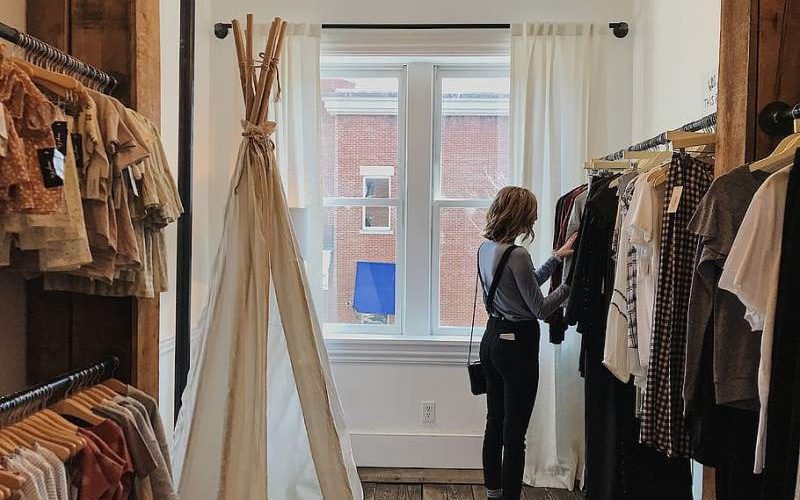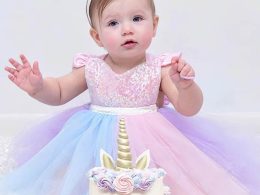Ethical fashion is like normal fashion, but better dressed and with a clear conscience as a bonus! It’s a fashionable way to dress while respecting workers’ rights, minimizing environmental impact and promoting sustainable practices. In short, it’s fashion for people who care about their impact on the world and don’t want to sacrifice their style to do so!
Why choose ethical fashion?
Opting for ethical and ecological fashion is like choosing a vegetarian burger instead of a meat burger: it’s good for the planet and your conscience! In addition, you can be sure that you are not participating in the exploitation of workers and that you are not wearing clothes that were manufactured under terrible conditions. Besides, let’s be honest, ethical fashion often has super cool and quirky designs, so you can look stylish while contributing to the good of the planet. In short, it’s the perfect choice for responsible fashionistas!
What are the benefits of ethical fashion?
The benefits of responsible fashion are like a Christmas gift list: it never ends! First of all, you can feel good about your clothes knowing that you’ve helped make a positive difference in the world. Then you can have peace of mind knowing you’re not participating in worker exploitation and wearing clothes that have a negative impact on the environment. And then there’s the fact that responsible fashion encourages creativity and innovation. Designers must find innovative solutions to make clothing in a sustainable and ethical way, which often leads to truly original and interesting results. Finally, there’s also the fact that responsible fashion can be a fun way to show off your personal style and stand out from the crowd. By opting for ethical and ecological clothing, you can find designs and brands that you will not find in traditional stores, allowing you to create a unique and truly personal look. In short, responsible fashion is a bit like having a superpower to change the world while being stylish and original!
What ethical and organic look to adopt?
To start, let’s opt for an organic cotton t-shirt, like the one offered by the “Knowledge Cotton Apparel” brand. This t-shirt is made from organic cotton grown without pesticides or environmentally harmful chemicals. Then, for pants, opt for jeans made from recycled denim, such as those from the “MUD Jeans” brand. Recycled denim significantly reduces the environmental impact of jeans production, while creating a vintage and trendy look. For shoes, a pair of ethical sneakers, like those of the “Veja” brand, will be a must. Veja sneakers are made from sustainable materials, such as eco-leather and wild rubber from the Amazon while offering an urban and relaxed style. Finally, to complete the look, an eco-friendly backpack, such as those of the brand “Good On You” is a good choice. Ecoalf bags are made from recycled materials such as plastic bottles and fishing nets, while offering a clean and modern design.
What are the eco-responsible materials to favor?
Eco-responsible materials are a bit like superheroes: they are there to save the planet! Here are some of the most eco-responsible materials:
- organic cotton: grown without pesticides or chemicals harmful to the environment, organic cotton is a sustainable and environmentally friendly alternative;
- flax: flax is a plant that requires little water and pesticides to grow, making it an ecological and sustainable option for fashion;
- recycled wool: recycled wool is made from wool fibers recovered from old clothes or fabric scraps. It reduces textile waste while creating comfortable and durable clothing;
- Tencel: made from wood pulp, Tencel is a biodegradable and ecological fiber that requires little water for its production;
- eco-leather: eco-leather is made from natural and sustainable materials, such as pineapple leaves or apple waste. It offers an eco-friendly alternative to traditional leather.
There is a growing awareness of the impact of fashion on the environment and workers in the sector. Consumers are increasingly aware of the impact of their purchasing choices and are looking for more sustainable and ethical alternatives. There has also been a growing awareness of harsh working conditions and exploitative practices in the fashion industry. Scandals over the production of cheap clothes in developing countries have raised concerns about the ethical practices of major brands. Finally, there is a growing desire to find a more personal and authentic connection with fashion. Slow fashion encourages a more thoughtful and conscious approach to fashion, prioritizing quality over quantity and striving to create garments that last and are made to last. All this contributes to a growing awareness of the impact of fashion on the world around us, as well as to a search for alternative, more sustainable and ethical solutions. Slow fashion and ethical fashion are therefore responses to these concerns and represent a more responsible and environmentally friendly alternative.











